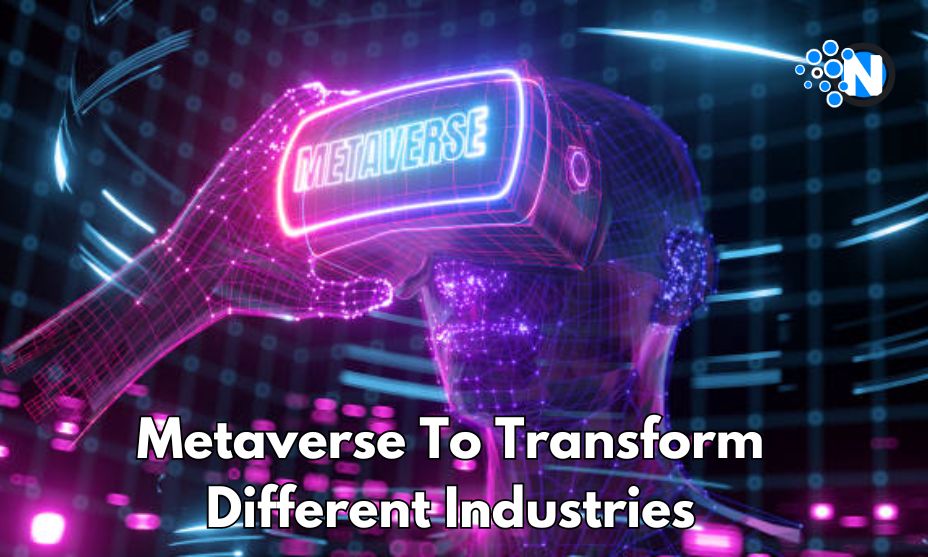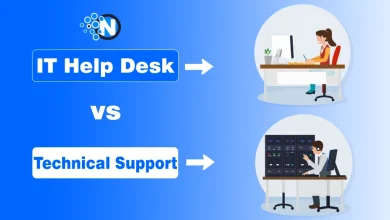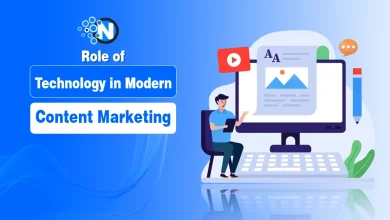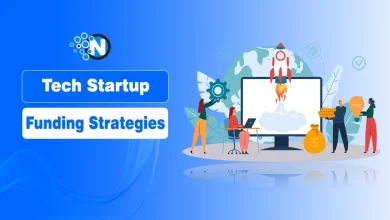Metaverse To Transform Different Industries – Know-How

Despite multiple changes, digital transformation holds great promise for modern enterprises. In terms of technology, static websites have made way for a global audience to interact with a Web 2 experience. Nonetheless, Metaverse is known as the major advancement in the history of the internet.
This year, the word “Metaverse” has become more well-known. As Metaverse has become more well-known in recent months, its applications are expanding past only exchanging digital goods.
Metaverse Explained
The metaverse is a place where hybrid and digital universes coexist. Stated differently, the Metaverse is a 3D (three-dimensional) in-nature web-powered environment built on virtual reality and augmented reality. In the Metaverse, users may unite in a virtual world and carry out any possible activity. It is akin to a virtual, networked environment made up of avatars, NFTs, digital objects, and many more.
The most recent Metaverse development also makes the case that the technology may include holographic avatars, AI (Artificial Intelligence), and the Internet of Things within its domain. The main question is, what does the Metaverse mean for businesses, even if these technologies are currently driving them ahead? Looking forward to it!
Why Do Businesses These Days Need Metaverse?
By use of state-of-the-art technologies like AR and VR, Metaverse can mimic the real world. Metaverse offers companies worldwide an array of economic opportunities as the next wave of social media and the internet.
Utilizing Metaverse in the online retail architecture, firms may reach a global audience despite local limitations.
Digital wallets are another feature of Metaverse that lets companies handle seamless transactions inside their virtual world.

There are several ways in which the Metaverse helps businesses. It is expected that every company will include Metaverse apps in its user needs and business plan. A March 2024 research revealed that over 17% of global IT companies had made investments in the Metaverse.
In the meanwhile, Metaverse is being used between 9 and 12% in different industrial sectors including marketing, banking, healthcare, and education.
Having established its location, let us examine some possible uses for Metaverse and its many benefits.
Knowing The Influence Of Metaverse On Different Businesses
As said before, the metaverse is a big idea. Every big industry uses metaverse applications: healthcare, gaming, tourism, and education. Over 40% of the AR and VR innovations already in progress are already based on the Metaverse paradigm.
Entertainment
Technology in entertainment and media surely affects how we access media. As with social media, live TV, and traditional media, the metaverse is just another way to create and consume media. It not only gets beyond geographical limitations but also fulfills our basic need to communicate, share stories, and exchange experiences.
Going to films, concerts, and sporting events, media, and entertainment came to a standstill during the Covid-19 outbreak. Several musicians and artists staged their first virtual reality concerts. These encounters expanded access beyond geographical limitations like location or venue capacity and opened the door for virtual reality entertainment.
Disney and many other of the biggest media and entertainment companies in the world are looking for ways to use metaverse events and experiences to interact with their fans and viewers.
E-commerce
Given the quick rise of significant e-commerce companies like Amazon, eBay, and Shopify, similar consumer adoption of the metaverse is going to create a big retail opportunity. As millions of people daily access current metaverses, marketers have a huge new channel to use for everything from organic marketing to new revenue sources.
Additionally, some stores are also allowing digital currencies as a way of adopting the modern currency. You can trade with Immediate alora AI and use your stored coins for global transactions.
Augmented and 3D reality let customers see their prospective purchases more clearly and have been demonstrated to help with better decision-making and reduced product returns. Shopify stores with 3D images in them converted 94% more often. As more internet retailers use 3D and AR, VR plus the metaverse will soon follow.
Maybe more than everything since the physical store, the metaverse is upending retail. As consumers grow used to mixed reality interactions, the next wave of e-commerce also starts to take shape.
Manufacturing
Prototyping in three dimensions and its modeling capability transformed the sector. The need of many intricate technological and logistical elements in manufacturing means that the focus of modern manufacturing strategies is on optimizing for different goals. Still, it comes down to a careful balance of overhead, inventory, labor costs, and speed.
Think of doing a complete production cycle in a virtual environment. BMW was able to do just that, testing changes single at a time in a virtual factory without halting production. The metaverse thus offers to boost productivity while enabling more people to produce, innovate, and develop.
Fintech
Historically, the banking and finance industry has been among the first to accept new technologies, and Metaverse is no different. To streamline procedures, save expenses, and enhance customer service, banks and other financial institutions are implementing Metaverse.
The most well-known application of Metaverse in the finance and banking sectors is identity verification. Using Metaverse, banks and financial institutions may quickly and easily confirm the identity of their customers. Fighting the laundering of cash and other economic crimes makes this extremely important.
One of the leading industries using Metaverse to streamline processes and enhance customer service is banking and financial services. To cater to global audiences the fintech industry is also spreading its branches in the adoption of virtual currency. Beginners can take assistance from trading bots websites like immediate-alora-ai.com/de and gather data about the trading and finance market.
Takeaway
These are but a handful of the several interesting applications of the metaverse in different sectors. Future developments of the platform should provide even more creative and revolutionary Metaverse applications across a range of sectors.
With its cutting-edge technologies including blockchain, augmented reality, and virtual reality, the Metaverse transforms many industries and presents enormous opportunities for modern companies.
Through seamless worldwide transactions and replication of the real world, the Metaverse improves customer experiences and stimulates creativity. Accepting the Metaverse results in previously unseen expansion and change in many industries.




